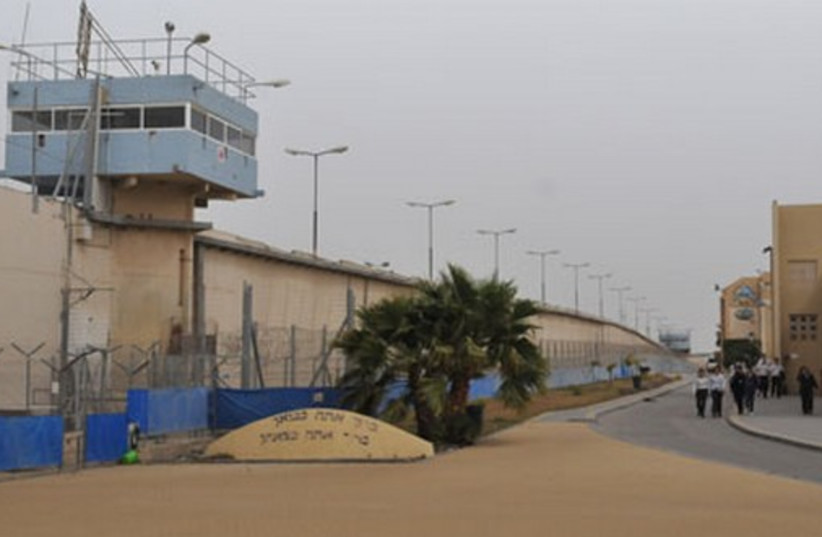Inmates riot, clash with guards in Beersheba prison riot
A riot started by inmates in the Eshel Prison in Beersheba was put down by security forces of the Israeli Prison Service (IPS) late on Thursday evening.
The riot began after dozens of prisoners spilled oil on the prison floor and refused to follow the guards’ orders. The guards reacted by forcefully entering the prison cells and removing leaders of the riots from there, in order to disperse the riots.
The IPS later announced that 17 of the prisoners who were removed from the cell block were sentenced to solitary confinement. The prisoners background was mostly from the former Soviet Union countries.
“17 prisoners have been pulled out of the wing by district units and the ‘Masada’ unit, because of opposition to disciplinary decisions of the prison command. IPS will not allow violations of order and discipline in its facilities,” the IPS spokesperson stated.
Around the same time, a vehicle belonging to the IPS was set on fire in Masada Street in Beersheba.
 Eshel Prison (credit: ISRAEL PRISON SERVICE)
Eshel Prison (credit: ISRAEL PRISON SERVICE)No casualties were reported and Israel Police opened an investigation into the incident, suspecting arson as the cause.
Concerning incidents at Eshel Prison
A number of years ago a somewhat similar incident happened in Eshel Prison, as in 2017, three fires were set in the prison by members of the Tanski gang.
At the time the gang members were trying to deliver a message to the prison authorities, that message being that their leader, Michael Tanski, seen as the head of the Russian mafia in the south of Israel and serving time in Eshel prison for murder, should get preferential treatment to other inmates.
In 2021, high-security wing at Eshel Prison was closed after a geological survey found that it was built on a pile foundation in a way that makes an escape possible, similar to the wing at Gilboa Prison from which security prisoners escaped.
First, the wing was evacuated for the tests, which were carried out following the escape from Gilboa Prison. After the construction failure was discovered, the wing was closed.
Yasser Okbi/Maariv, Liran Levi/Walla, and Hagay Cohen contributed to this report.





Comments are closed.